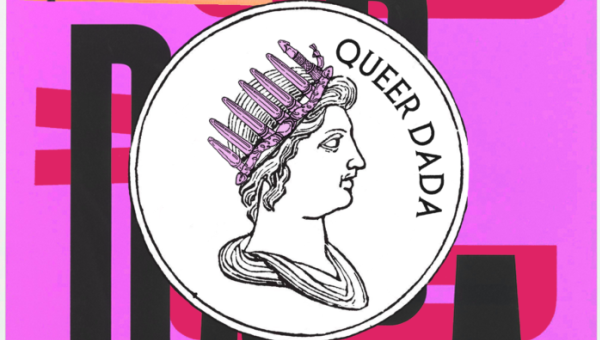Digital Delights and Disturbances Lecture Series Presents "Queer Dada"

Queer Dada poster
“Come join ‘Queer Dada’, an ode to fluidity, a celebration of creativity Dada-style.
Queer Dada is a live performance featuring queer, non-binary and trans-human creatures from across nations, genders, and the intersections that make up the human species.
It is a trans-space inhabited by artists reaching out from beyond cultural boundaries, gender binaries and the violence of the Anthropocene.”
On March 30, the JCU Department of Communications, in collaboration with the Queer Alliance Club, hosted “Queer Dada” as part of the Digital Delights and Disturbances Series. The objective of the event, which consisted of live performances featuring queer writers of different nationalities, was to celebrate queerness and the fluidity of Dada. ‘Dada’ or Dadaism is an art movement of the European avant-garde in the early 20th century that expressed nonsense and irrationality in the works of its artists, as a sign of protest against capitalism, violence, and nationalism. The term ‘Dada’ is also used as an act of defiance against “dataism,” the quantification of the ‘self-performed’ by digital technologies.
The performances took place in the Aula Magna Regina of John Cabot University and were live-streamed on JCUTV, the University’s official channel. The event was hosted by Comm•e, the Communication Department’s robot. Due to COVID-19 safety measures, the speakers participated through the interface of Comm•e. Only Roman “noiser” ‘System Hardware Abnormal SHA’ (They) attended the event in person. Wearing a pink bra and matching briefs, they performed their music between readings.
The readers were (in order of appearance) Simon(e) van Sarloos (They/She), Raphael Amahl Khoury (They/He), Drew Pham (They/She), Natalia Borges Polasso (She), and Allison Grimaldi-Donahue (She). Van Sarloos is a Dutch is a writer and artist; Khoury is a trans artist from Jordan, who has authored several plays and documentaries on queerness; Pham is a queer, transgender American writer of Vietnamese heritage; Borges Polasso is a Brazilian researcher, writer, and translator; Grimaldi-Donahue is an American poet, writer, translator and lecturer in English at John Cabot. The readers touched upon different themes, including the invisibility of queer people, society’s impositions of gender roles, and their consequences in the life of people who do not identify with the gender binary.
At the end of the event, Communications professor Donatella Della Ratta thanked the audience and the guests and introduced one final piece by the JCU Queer Alliance Club. It consisted of a collage of short segments in which different students talked about personal experiences through songs, poems, narratives, and short films.





